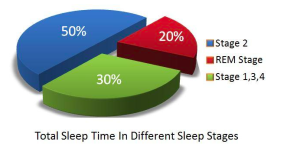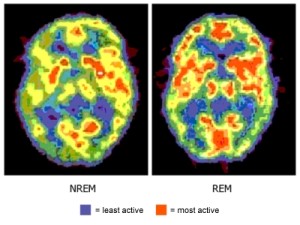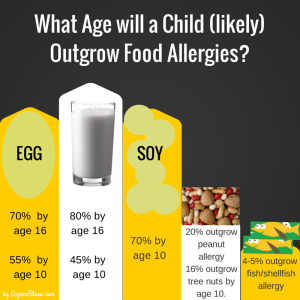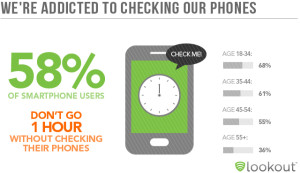Type 2 Diabetes: “One of the two major types of diabetes, the type in which the beta cells of the pancreas produce insulin but the body is unable to use it effectively because the cells of the body are resistant to the action of insulin.”
 Growing up, i’ve always been very educated about Diabetes. My mom and brother both have type 2. They have always told me to eat lots of yogurt because it helps prevent chances of developing type 2. I’ve always wondered why this is? What is in the yogurt that helps prevent type 2?
Growing up, i’ve always been very educated about Diabetes. My mom and brother both have type 2. They have always told me to eat lots of yogurt because it helps prevent chances of developing type 2. I’ve always wondered why this is? What is in the yogurt that helps prevent type 2?
What’s in Yogurt?
Yogurt is very beneficial to the human body. Yogurt is known as a “good” bacteria for the body, it provides us with “calcium, vitamin D, protein, and, in some brands, probiotics.” A term that is used very often in relation to yogurt is ”probiotics.” Probiotic means, “for life” which “refers to living organisms that can result in a health benefit when eaten in adequate amounts.” Also, the fact that yogurt comes from milk, provides “yogurt eaters will also get a dose of animal protein (about 9 grams per 6-ounce serving), plus several other nutrients found in dairy foods, like calcium, vitamin B-2, B-12, potassium, and magnesium.”
Experiment
In the following experiment, researchers from Harvard School of Public Health, looked at the findings of three studies that tracked the “medical history and lifestyle habits of health professionals.” The total number of people that were qualified for this study was 194,519. After the participants filled out surveys about their medical history and health, and then checked up on every two years. However, after looking at the surveys, researchers eliminated participants who “did not include information about their dairy consumption and  those with diabetes, cardiovascular disease, or cancer at the start of the survey.”
those with diabetes, cardiovascular disease, or cancer at the start of the survey.”
With the remaining participants, researchers found “15,156 cases of type 2 diabetes developing during the follow-up period.” After examining the details, they found that ones total dairy intake does not correlate to type 2 diabetes risk. For further investigation, researchers examined “individual dairy products, including skim milk, cheese, and yogurt.”
According to Medical News Today, “A meta-analysis was then carried out, comparing these findings with those from other studies that had examined the association between dairy products and type 2 diabetes up until March 2013. This analysis found that eating a 28 g serving of yogurt every day was associated with an 18% lower risk of type 2 diabetes developing.”
Null- Hypothesis: Yogurt does not help prevent type 2 diabetes.
Alternative Hypothesis: Yogurt helps prevent type 2 diabetes.
My Opinion
I feel this experiment is very well conducted. By rejecting the null hypothesis, it proves that in fact, yogurt has an affect on the risk of type 2 diabetes. In my opinion, the study did a great job of finding the information they needed. When they did not get the exact outcome they expected the first time, they went into greater detail to find the answer the second time around. However, this was just an observational experiment. If I was to conduct this experiment I would make it an experimental research. Instead of just filling out a survey, I would have participants come into an office and be t ested for their medical health by doctors, who would take their blood, blood pressure, heart rate, etc. Then, after gathering all the information about each patient, I would have them be split up into two groups. One group would eat yogurt at least once each day. The other group would not eat yogurt at all. I would still check on them, however maybe every 6 months instead of every 2 years. After about 4 years have passed, I would have them come back into the office and have them get the same checkup at they did in the beginning of the experiment. After getting the results, I could compare the health of the participants who ate the yogurt with the participants who did not.
ested for their medical health by doctors, who would take their blood, blood pressure, heart rate, etc. Then, after gathering all the information about each patient, I would have them be split up into two groups. One group would eat yogurt at least once each day. The other group would not eat yogurt at all. I would still check on them, however maybe every 6 months instead of every 2 years. After about 4 years have passed, I would have them come back into the office and have them get the same checkup at they did in the beginning of the experiment. After getting the results, I could compare the health of the participants who ate the yogurt with the participants who did not.
Sources:
http://www.eurekalert.org/pub_releases/2014-02/d-ssy020414.php
http://www.medscape.com/viewarticle/820273
http://www.medicalnewstoday.com/articles/285964.php

 correlates with the grades I am receiving?
correlates with the grades I am receiving? med three times a week might improve various measures of thinking, including memory and mental multitasking. The other half of the volunteers were asked the same questions, but about a regular walking program.”
med three times a week might improve various measures of thinking, including memory and mental multitasking. The other half of the volunteers were asked the same questions, but about a regular walking program.” If expectations had been driving the improvements in cognition seen in studies after exercise, Mr. Stothart said, then people should have expected walking to be more beneficial for thinking than stretching.“They didn’t, implying that the changes in the brain and thinking after exercise are physiologically genuine.” Still, the findings are strong enough to suggest that exercise really does change the brain and may, in the process, improve thinking, Mr. Stothart said.
If expectations had been driving the improvements in cognition seen in studies after exercise, Mr. Stothart said, then people should have expected walking to be more beneficial for thinking than stretching.“They didn’t, implying that the changes in the brain and thinking after exercise are physiologically genuine.” Still, the findings are strong enough to suggest that exercise really does change the brain and may, in the process, improve thinking, Mr. Stothart said. pick it up before it goes bad. However, I wondered who came up with this rule? Is it a myth? Is your food safe to eat?
pick it up before it goes bad. However, I wondered who came up with this rule? Is it a myth? Is your food safe to eat?  on the ground. One example I will expand on today is salmonella.
on the ground. One example I will expand on today is salmonella.  heart rate and breathing tends to slow down. One usually does not dream during this stage, but will often make, “sudden twitches or jerks that are the last gasps of waking control before
heart rate and breathing tends to slow down. One usually does not dream during this stage, but will often make, “sudden twitches or jerks that are the last gasps of waking control before  REM, also known as Rapid Eye Movement, is where most dreams occur. According to WedMD, “usually, REM sleep happens 90 minutes after you fall asleep. The
REM, also known as Rapid Eye Movement, is where most dreams occur. According to WedMD, “usually, REM sleep happens 90 minutes after you fall asleep. The  Rebecca Turner, gives us an example of what she found when she did this experiment. “I turn to face a mirror by the front door to see what I look like. It looks like me, but older, with messy hair and scary eyes. As if she reads my mind, the reflection starts to age rapidly and I get older and older. It’s like the scene from the original Time Machine movie, a sort of stop-motion effect. My skin wrinkles and my hair goes gray and I am haggard. I am an old lady, with my mouth wide open. Then my teeth crumble and fall out and I become a corpse! I have just sped through my life. Man that was ugly!”
Rebecca Turner, gives us an example of what she found when she did this experiment. “I turn to face a mirror by the front door to see what I look like. It looks like me, but older, with messy hair and scary eyes. As if she reads my mind, the reflection starts to age rapidly and I get older and older. It’s like the scene from the original Time Machine movie, a sort of stop-motion effect. My skin wrinkles and my hair goes gray and I am haggard. I am an old lady, with my mouth wide open. Then my teeth crumble and fall out and I become a corpse! I have just sped through my life. Man that was ugly!” t, “exercise can help reduce depression and anxiety, and can be especially beneficial to people who lack access to traditional treatments, such as drugs or counseling.” In another study, Smits found that, “After just 25 minutes, your mood improves, you are less stressed, you have more energy.”
t, “exercise can help reduce depression and anxiety, and can be especially beneficial to people who lack access to traditional treatments, such as drugs or counseling.” In another study, Smits found that, “After just 25 minutes, your mood improves, you are less stressed, you have more energy.” hile participating in sports you engaging in exercise which, “controls weight by burning calories, improves the functioning of the cardiovascular system, placing a lower strain on the heart, and increases an athlete’s energy level while improving the quality of sleep.”
hile participating in sports you engaging in exercise which, “controls weight by burning calories, improves the functioning of the cardiovascular system, placing a lower strain on the heart, and increases an athlete’s energy level while improving the quality of sleep.” rests. Team sports teach athletes how to be a team player. Sportsmanship is a very good quality to have. Being on a team will teach you sportsmanship and will teach you that it is okay to lose. On a sports team a child can learn how to work hard at something they really want. They can learn that practice and hard work will make them better and get them closer to achieving their goal.
rests. Team sports teach athletes how to be a team player. Sportsmanship is a very good quality to have. Being on a team will teach you sportsmanship and will teach you that it is okay to lose. On a sports team a child can learn how to work hard at something they really want. They can learn that practice and hard work will make them better and get them closer to achieving their goal. ciations and virtually none of the research demonstrated any negative impact.”
ciations and virtually none of the research demonstrated any negative impact.” molecules called immunoglobulin E (IgE) antibodies to orchestrate a ‘defense.’”
molecules called immunoglobulin E (IgE) antibodies to orchestrate a ‘defense.’” ood increased over the years.”
ood increased over the years.” bstances such as milk or peanuts will make your child less likely to develop an allergy to them. In a study recently published by Gideon Lack and his colleagues, they found that, “when peanuts are introduced in the first 8 months of life, children are much less likely to develop peanut allergies.”
bstances such as milk or peanuts will make your child less likely to develop an allergy to them. In a study recently published by Gideon Lack and his colleagues, they found that, “when peanuts are introduced in the first 8 months of life, children are much less likely to develop peanut allergies.” in the morning, tired and cranky, I have the urge for a cup of coffee. Every morning I wake up and drink a cup of coffee to energize me and get me started for the day. However, throughout the day, I start to feel less energized and more tired. At the end of the day I am exhausted. Could drinking coffee be making me more tired?
in the morning, tired and cranky, I have the urge for a cup of coffee. Every morning I wake up and drink a cup of coffee to energize me and get me started for the day. However, throughout the day, I start to feel less energized and more tired. At the end of the day I am exhausted. Could drinking coffee be making me more tired?

 extremely pleasurable activities.”
extremely pleasurable activities.”

 Sources:
Sources:
